Mikhail Gorbachev, the final President of the Soviet Union who died last night, was remarkable both as an international politician and as a domestic reformer. I first met him when he came to London in December 1984, when Mrs Thatcher said that she liked him and could do business with him. He was open, friendly, and spoke without notes: the opposite of his predecessors. Some of Thatcher’s own officials suspected that he was merely an old-fashioned communist who had learned new tricks, and that his charm was seducing her from her clear view of the Soviet threat.
Thatcher was right, and the sceptics were wrong. By that time, the Soviet system was in serious trouble. It could just about keep up with American military technology. Its economy was reeling, unable to give ordinary people what they wanted. People in Eastern Europe and even within the Soviet Union were increasingly ready to take to the streets. The old men in the Politburo saw all this perfectly well: they were not stupid. They chose Gorbachev to put things right because he combined youth, energy, brains, and administrative skill. Their mistake was to believe he was as orthodox as they were.
Unlike some of his predecessors, Gorbachev was loath to spill blood or to send in the tanks. He genuinely understood the way ordinary people felt: he and his peasant family had nearly starved to death in the postwar famine. He started with the old Soviet remedies: rhetoric, discipline, new technology, and a ban on alcohol to exorcise the ancient Russian curse of drunkenness. None of it worked. He turned to more radical measures: a half-hearted loosening of the planned economy, a genuine increase of press freedom, and in March 1989 a remarkable stab at a kind of democracy.
Gorbachev spoke to ordinary people not in the stilted jargon of ideology, but in human language. He talked freely with the crowds in the street, listened to them, argued with them. He was enthusiastic, and relentlessly optimistic. At first they loved him for it. But then they noticed that his fine words were too often unaccompanied by deeds. Eventually they tired of his unflagging verbosity. They switched their support to Boris Yeltsin, a provincial party boss of great political skill, unlimited ambition, and an earthy and populist style. Gorbachev had brought him to Moscow to help with reform. It soon became clear that his aim was to replace Gorbachev: by hook or by crook.
Gorbachev couldn’t satisfy popular expectations and he entirely unnerved the reactionaries. In August 1991 they mounted a half-hearted coup against him. Yeltsin and his colleagues from Ukraine and Belarus exploited its failure to announce that the Soviet Union was no more. On Christmas Day, Gorbachev was bundled into ignominious retirement.
Many western commentators say that Gorbachev presided over the collapse of the Soviet Union, as if that was somehow his purpose. Russians who faced poverty, disarray, and in some cases actual starvation after 1991 are far more critical. They believe that he destroyed a great country because he was a fool – or even the willing tool of the Soviet Union’s foreign enemies who were out to destroy it. Putin shares their feelings. But he has deliberately exploited them to justify the increasingly predatory foreign policy which culminated in the invasion of Ukraine.
By the time Gorbachev took over, no one person could have rectified the mess. Hardship and disruption were bound to hit the Soviet people. When the Berlin Wall came down in November 1989, it already looked as if the Soviet Union would fly apart, and that the trigger would be Ukraine. Even the most anti-communist Russians were appalled. Feelings ran so high that when the two countries split at the end of 1991, it was already possible to imagine a Russo-Ukrainian war.
Over 30 years I became genuinely fond of Gorbachev. He was of course a practical politician, sometimes less straightforward than he seemed. But he was a nice man: not what I’d expected of a leader of the Soviet Communist party. He was exceptionally close to his wife Raisa. It was a great marriage, both intellectually and emotionally: something that irritated the macho Russian politicians around him. I called on him after her death in 1999. He looked so miserable I gave him a big hug. He told me that his phone had rung in a dream: when he picked it up, it was her. But when he asked where she was phoning from, the phone went dead. He was terribly distressed. But he soon perked up to tell me he’d just founded a new social democratic party. It was typical of his humanity, his emotional openness, and his irrepressible and often impractical optimism.
The Russians may eventually recognise what a remarkable leader they had in Gorbachev. If that ever happens it will mean that Russia has at last emerged from a long nightmare.
Got something to add? Join the discussion and comment below.
Get 10 issues for just $10
Subscribe to The Spectator Australia today for the next 10 magazine issues, plus full online access, for just $10.

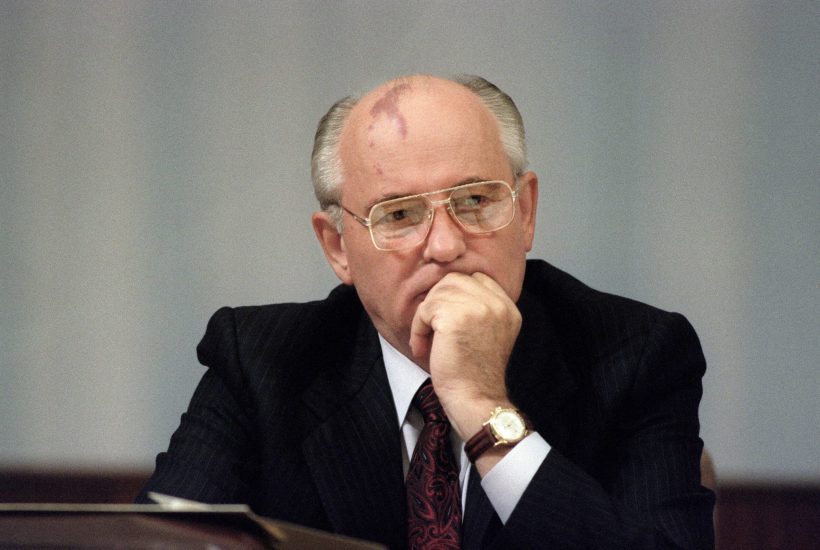
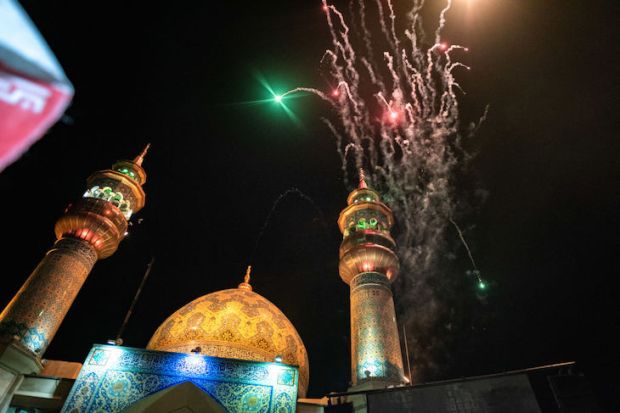
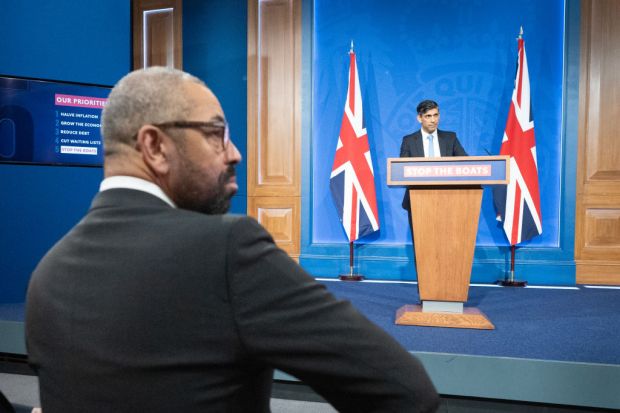
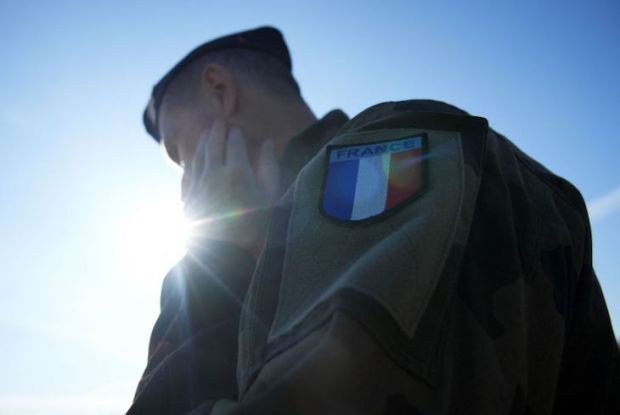
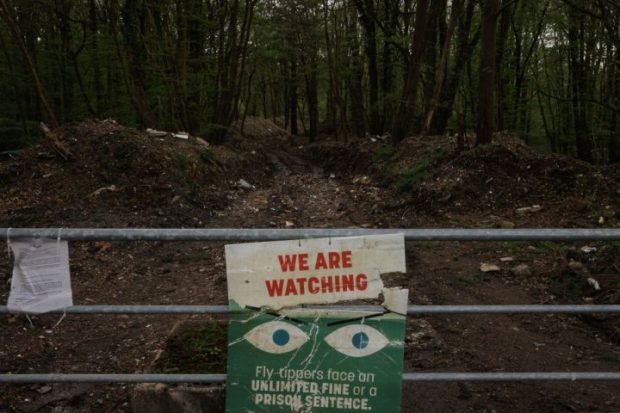
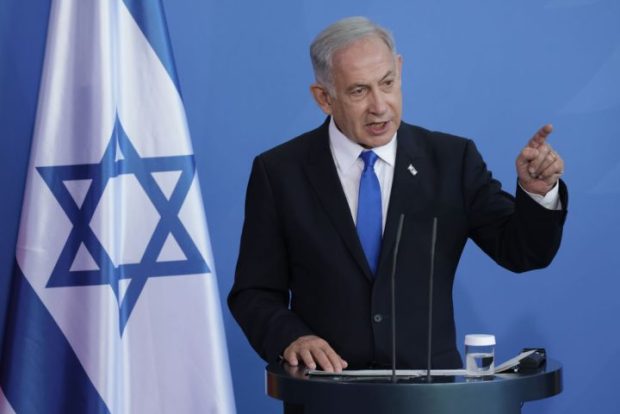
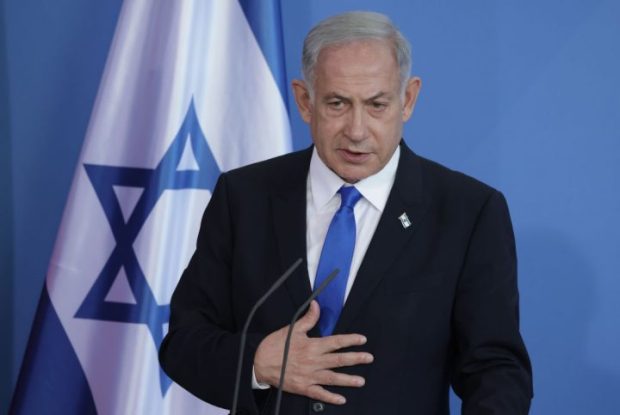












Comments
Don't miss out
Join the conversation with other Spectator Australia readers. Subscribe to leave a comment.
SUBSCRIBEAlready a subscriber? Log in